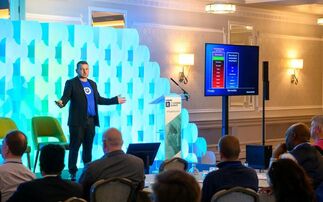But latest attack not considered big enough to break the internet
Cloud services firm Cloudflare has claimed it has recorded and mitigated the biggest ever cyber attack. The cyber attack exploited the Network Time Protocol (NTP), a system for clock synchronisa...
To continue reading this article...
Join Computing
- Unlimited access to real-time news, analysis and opinion from the technology industry
- Receive important and breaking news in our daily newsletter
- Be the first to hear about our events and awards programmes
- Join live member only interviews with IT leaders at the ‘IT Lounge’; your chance to ask your burning tech questions and have them answered
- Access to the Computing Delta hub providing market intelligence and research
- Receive our members-only newsletter with exclusive opinion pieces from senior IT Leaders






















